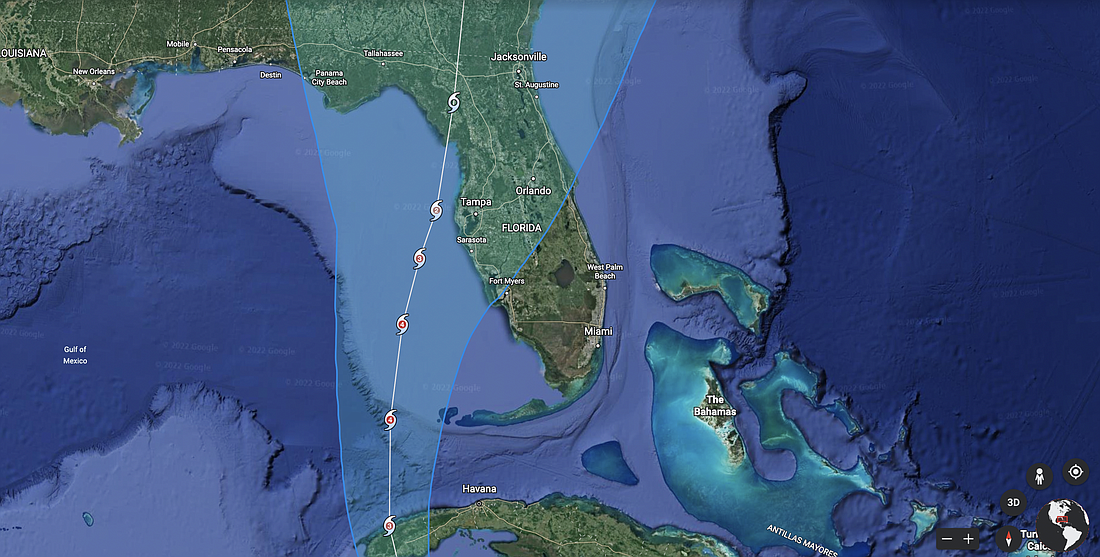by: Volusia County Community Information
As Tropical Storm Ian approaches southwest Florida, some forecast models show the track moving slightly westward, while others show it tracking more to the east, so Volusia County isn’t out of the woods yet.
“Tropical storms and hurricanes can change course rapidly, so it’s important that residents continue preparing for significant wind and rainfall.” said Jim Judge, interim director of Volusia County Emergency Management.
He added that county staff remains in communication with the National Weather Service, Florida Division of Emergency Management and local municipalities.
Governor declares state of emergency
In anticipatory response to Tropical Storm Ian, Gov. Ron DeSantis has amended his original declaration of emergency to include the entire state.
Precautionary measures
While the impacts of the impending storm are not expected to hit Volusia County for a few days, residents should take precautionary measures, including:
- Ensure enough food and water are available for all household members.
- Remove debris, clean gutters and secure loose items, such as yard and patio furniture.
- Make sure flashlights are still working and ample batteries are available.
Sandbags
Volusia County and most municipalities are distributing free sand and sandbags. Visit volusia.org/sandbags to view distribution sites. This page is updated frequently.
Generator safety
If you lose power and plan to use a generator, follow these safety tips:
- Placement is key. Never use generators indoors or outside near windows, vents or air intakes that could allow carbon monoxide (CO) to come indoors. This can be fatal.
- Use proper care. Proper ventilation is critical to reducing the risk of carbon monoxide poisoning from a generator’s engine exhaust. CO poisoning is a common, serious danger that can cause death if generators are used improperly; this is particularly true when the fuel is not burned completely.
- Keep other items clear. Maintain plenty of air flow space around the generator.
- Pay attention. Get fresh air immediately if you begin to feel sick, dizzy or light-headed or experience flu-like symptoms.
- Buy a CO detector. Because CO is invisible and odorless, buy a CO detector (similar to or sometimes combined in a smoke detector) to warn of rising CO levels.
- Ground your generator. Carefully follow all instructions on properly “grounding” the generator.
- Keep the generator dry. Short circuits may occur in wet conditions, which can cause a generator fire. If needed, place the generator under an open canopy-type structure.
- Be prepared. Always keep a fully charged fire extinguisher nearby.
- Leave it to the professionals. To avoid electric shock or electrocution, do not try to fix or otherwise work on a generator.
- Organize your cords. Keep cords out of the way to avoid injury, but keep them in plain view to keep track of cord damage, such as fraying or cuts, that could cause a fire.
- Never back-feed power. Do not plug the generator into a wall outlet. Back feeding will put you and others, including utility line workers, at serious risk because the utility transformer can increase low voltage from the generator to thousands of volts.
- Don’t touch. It’s hot. The exterior portions of a generator, even if operated for only a short period of time, can become hot. Avoid touching the generator without protective gear and keep debris clear to avoid a fire.
Citizens Information Center
Residents can call the Citizens Information Center at 866-345-0345 from 8 a.m. to 5 p.m. Sunday, Sept. 25, and Monday, Sept. 26. If needed, the center will be open additional days.
County website
To find the most up-to-date information and a list of resources, visit volusia.org/pin.

